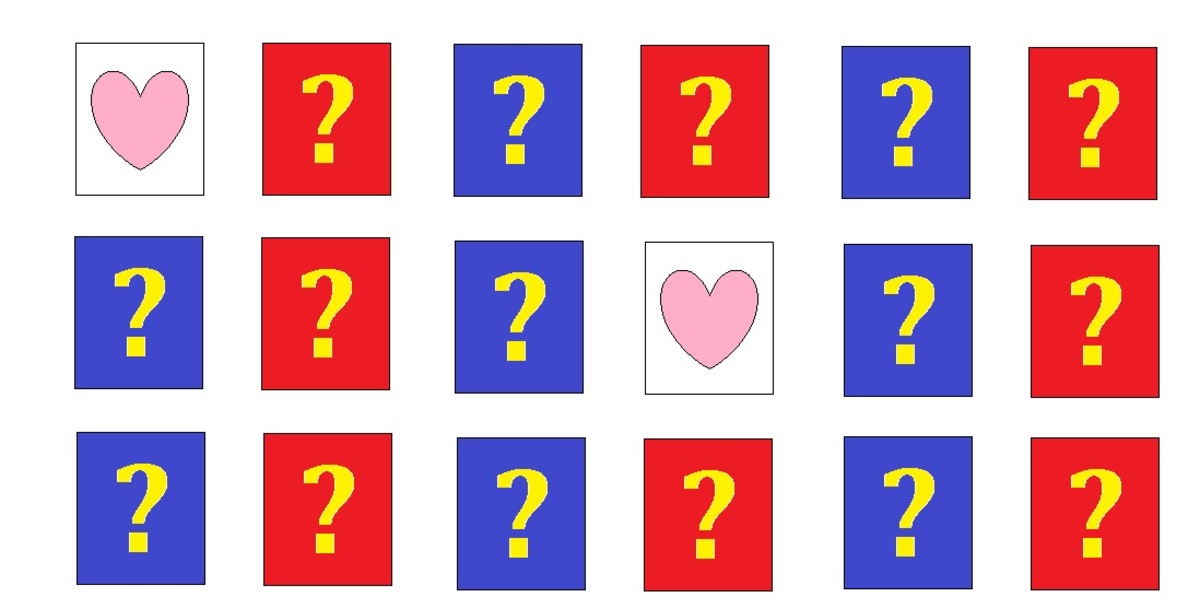Date with a Psychic

Peter was taking Carrie, an amateur psychic, to play "Love Matching" game during their date. In this game, the couple would try to find the pair of hearts out of all cards, where the girlfriend first chose one from the red cards and then the boyfriend the blue ones.
With her psychic power, the probability of Carrie's choosing the heart card was twice of Peter's chance and was 6 5 times the chance of at least one of them picking the heart cards.
What would be the positive probability (in percentage) of Peter's picking the heart card given that Carrie's already getting the heart card?
The answer is 30.
This section requires Javascript.
You are seeing this because something didn't load right. We suggest you, (a) try
refreshing the page, (b) enabling javascript if it is disabled on your browser and,
finally, (c)
loading the
non-javascript version of this page
. We're sorry about the hassle.
2 solutions
Hm, I don't think conditional probability is the best way of solving the problem. I rather just use probability directly.
Log in to reply
Oh, well, I just applied the formula accordingly. ;)
Note that P ( A ) = P ( B ) = 0 works, and the chance that at least one of them picks a heart is also 0. (How fitting for a psychic, grin).
In your solution, it doesn't show up, because you cancelled P ( B ) from the numerator and the denominator.
Let P be the probability that Peter picks a heart. Then, the probability that Carrie picks a heart is 2 P . Hence, the probability that at least one of them picks a heart is 1 − ( 1 − P ) ( 1 − 2 P ) . This gives us
6 5 [ 1 − ( 1 − P ) ( 1 − 2 P ) ] = 2 P .
Solving the quadratic, we get that − 1 0 P 2 + 3 P = 0 , so the solutions are P = 0 , P = 1 0 3 .
Well, if 2 events are exclusively independent, P ( A ∪ B ) = P ( A ) + P ( B ) − P ( A ∩ B ) = P ( A ) + P ( B ) − P ( A ) × P ( B ) accordingly to your equation.
But in case of dependent events (e.g. Carrie's power affecting Peter ;) ), P ( A ∩ B ) = P ( A ∣ B ) × P ( B ) , and we can still solve for P ( A ∣ B ) with ratio given in the question.
Log in to reply
How is Carrie's probability dependent on the occurrence of Peter's choice? They are independent, which is why you have the formula as stated.
Yes, the probability values are related, but that doesn't mean that these events are dependent. For example, we can toss a fair coin and a fair dice, the probability of getting a head is thrice that of getting a 1. But these events are not dependent.
Let A be the event of Peter's picking the heart card and B be the event of Carrie's, where P stands for probability. The probability of A given that B has already happened (if B then A can be expressed as P ( A ∣ B ) .
Then P ( A ∣ B ) = P ( B ) P ( A ∩ B ) .
And by set operation, we know that P ( A ∪ B ) = P ( A ) + P ( B ) − P ( A ∩ B ) or P ( A ∩ B ) = P ( A ) + P ( B ) − P ( A ∪ B ) .
Then P ( A ∣ B ) = P ( B ) P ( A ) + P ( B ) − P ( A ∪ B ) .
From the question, we known that P ( B ) = 2 × P ( A ) ; P ( B ) = 6 5 × P ( A ∪ B ) .
Hence, P ( A ∣ B ) = 2 1 + 1 − 5 6 = 1 . 5 − 1 . 2 = 0 . 3 = 3 0 % .
As a result, the chance of Peter's picking the heart card is 3 0 % given that Carrie already getting the heart card.